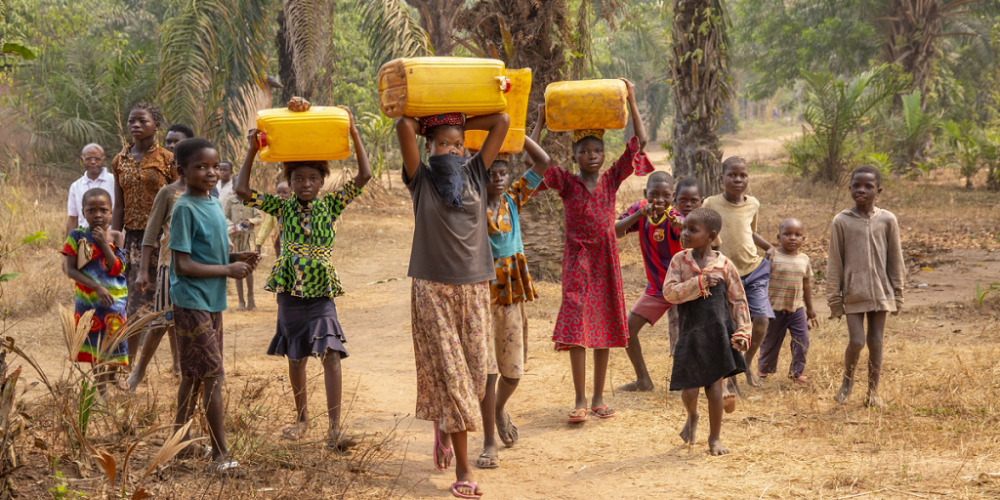Mbuji Mayi, the second largest city in the Democratic Republic of Congo, is located in one of the world's leading diamond mining areas, which is why the population has tripled since the 1980s. Despite the wealth of mineral resources, the city is one of the poorest in the country: 75% of people live on less than $0.50 a day and more than 80% of the population does not have access to health services, school education or water.
The greatest difficulties are concentrated in the most peripheral areas of the city, such as the unfortunate district of Makala, where people live in total misery. Among the problems that afflict the area, the water supply is the main one and to this is added the very high risk of violence.
The Muetu Don Bosco Centre in Mbuji Mayi was founded by the Salesians in 1995 in Makala, quickly becoming a point of reference for all the poor inhabitants of the neighbourhood. There are 4,900 young people who benefit from the services offered by the mission, in addition to employees and their families, patients from the adjoining medical clinic, parishioners and vulnerable families in the neighbourhood. Together with the children and adolescents at the centre, almost 9,400 people face the long journeys to Bushimaie, Nyongolo, Kanshi, Kanjiya every day.
The Centre has a water supply system that allows it to supply 2,800 litres of drinking water daily: rainwater that is collected and filtered in six tanks, but, since the needs of the centre and the surrounding area are greater, the Salesians buy another 15,000 litres of filtered water every day. In recent years, spending has become unsustainable, as well as not guaranteeing the minimum daily needs of users, making it necessary to drill a deep well. In this way, the Salesians hope to fully cover not only the internal needs and the current beneficiaries of the neighbourhood, but also to ensure water supply to additional families. With the outbreak of yet another cholera epidemic that continues to claim victims every day, the implementation of this project is considered an urgent priority by the Salesians of the region and by local authorities.
The objective of the project is to guarantee safe, equitable and sufficient water supply to the population, promote good personal hygiene, reduce the difficulties related to the distance of the population from public sampling points and the risk of exposure to dangers for women and girls, whose school attendance is thereby limited.
 To support endevaours such as this, please visit Salesian Missions
To support endevaours such as this, please visit Salesian Missions
 With thanks to ANS for this story
With thanks to ANS for this story

